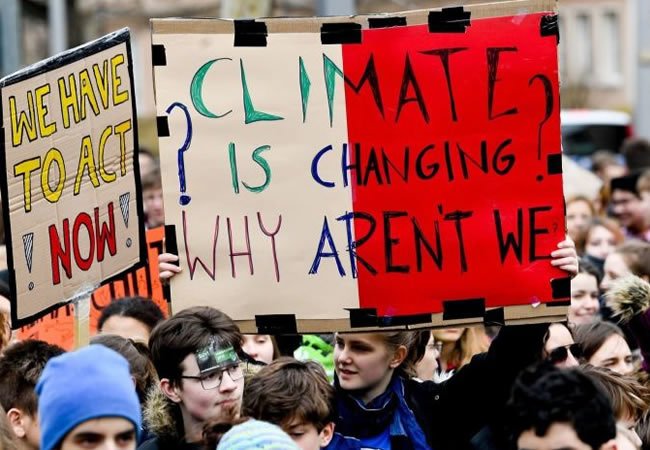
A firm, Springer Nature, advocated for individual cum group behavioural changes towards solving climate problems.
In a white paper jointly issued with the United Nations Sustainable Development Solutions Network, the duo bodies said inspiration could be drawn from the behavioral attitudes adopted to tackle the COVID-19 pandemic which assisted in bringing the spread to a minimum.
Generally, behavioural attitudes in climate actions include conscious reduction, reusing, and recycling of carbon-oriented items, such as plastics. It can also be applied in other areas such as conservation of food and energy, planting trees, and travelling in groups.
“The learning from crises series, which asked what we could learn from the COVID-19 pandemic that could be applied for climate action, consisted of two cross-sectoral, multidisciplinary expert discussions and concluded with a virtual event hosted alongside the Conference of Parties 26,” the firm noted.
Springer Nature and the UN SDSN said their white paper featured some of the most compelling ideas explored in a series of interdisciplinary roundtables which aimed to spur new perspectives, research, and interdisciplinary approaches to global crises.
The statement issued by the firm said, “The first roundtable focused on behaviour and misinformation, and examined how – just like in the pandemic – we need behavioural interventions to reduce carbon emissions and promote climate adaptation. The second roundtable explored the imbalances in the impact and response to crises, the way in which inequality can hinder solutions, and identified the lessons learned to create more equitable responses to future crises.
“These topics were chosen because COVID-19 highlighted the crucial importance of tackling misinformation and motivated ignorance, demonstrated that individual behaviours can benefit society collectively, and has shown how structural inequalities predetermine who is most affected and how – all issues that have clear parallels to the climate crisis.
“The white paper features a variety of expert voices and interview quotes and concludes that identifying ways to proactively address complex global challenges that emerge from crises, requires ongoing interdisciplinary research, drawing from a diverse range of voices and the expertise of multiple disciplines.
“The white paper also provides the background to the roundtables and the collaboration between Springer Nature and SDSN, more information on the wide range of participants, and further detail as to why interdisciplinary approaches are so important for identifying solutions to crises. It also includes a list of supporting research to encourage further reading on the topics raised.”
Commenting on the roundtable series and the white paper, the Editorial Director, Social Sciences at Springer Nature had said, “Such vast global crises as pandemics and climate change, require new and more integrated approaches across the globe. We had an aspiration to bring together people who might otherwise not meet and who could contribute a broad range of knowledge and experience. As responsible stewards of knowledge, we must find new ways to work together and identify novel and innovative solutions to the challenges before us and to those that lie ahead.
Whilst of course there were many empty seats in terms of full inclusivity and representation, it was an inspiring start: we matched medical doctors with scholars of race and gender, psychologists with climate change mitigation experts, a chief executive with a journalist, and more. In establishing this forum, we have started collaborations that we hope will continue to generate new insights and solutions as time goes on.”
Climate action is one of the methods of climate adaptation that aims at potentially reducing the effects of climate change, unlike climate mitigation which involves policies and sustainable production that aim at providing a long-term solution to climate problems.
Copyright PUNCH.
All rights reserved. This material, and other digital content on this website, may not be reproduced, published, broadcast, rewritten or redistributed in whole or in part without prior express written permission from PUNCH.
Contact: [email protected]





